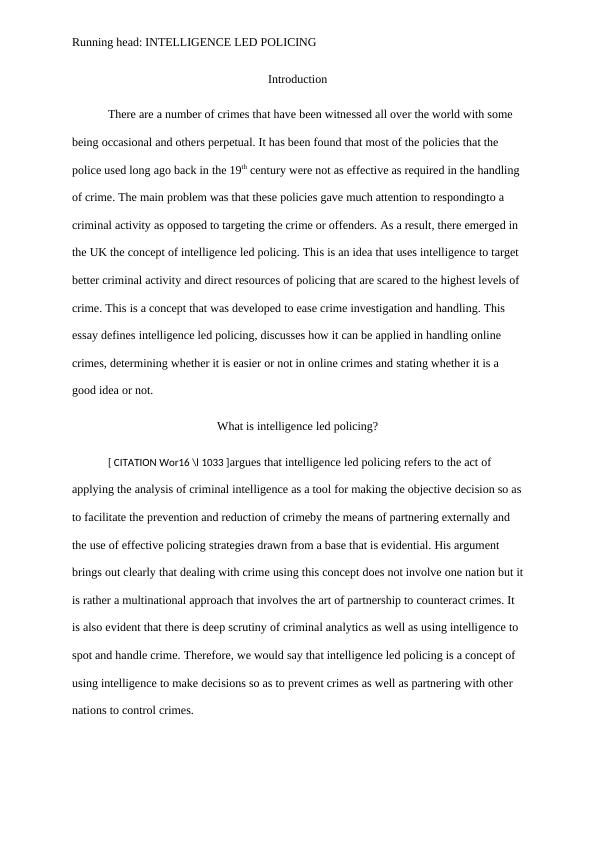5 Characteristics of professional crime andcriminals
- Difference between professional and ordinary criminals Professional criminals differ from ordinary or conventional criminals. The difference may be discussed at several levels: (1) Professional criminals are skilled in their criminal activity but.
- Occasional Criminals The occasional criminal only performs the act if the opportunity or necessity occurs in his/her routine of daily life. Occasional criminals do not exhibit, or who exhibit in slighter degrees, the anatomical, physiological, and psychological characteristics of criminal potential.
- Occasional criminals, Habitual criminals, Professional criminals, White-collar crime, Organized crime, corporate crimes. Crime and Criminality: Theoretical Perspectives Early explanation of criminal behavior § Classical School § Positivist School (Biological and Psychological Explanations) § Positivist School (Sociological Explanation).
- An occasional criminal would be someone who on occasion might shoplift, or take leave a restaurant and not pay for their meal. A professional criminal, makes his or her living by illicit dealings.

Sutherland (1965: 240) has given the following six characteristics of professional crime:
Fold classification in 'habitual' and 'occasional' criminals, and the three- fold classification in 'habitual,' 'instinctive,' and 'occasional' criminals are regarued by him as artificial in their simplicty and quite insufficient to mark the distinct types of criminals.
1. Regularity, i.e., continuity in work as crime.
ADVERTISEMENTS:
2. Technical skill, i.e., use of complex techniques for committing crime which have been used in crime over a long period of time.
3. Status, i.e., enjoying a position of high prestige in the world of crime.
4. Consensus, i.e., sharing of common values, beliefs, and attitudes with other criminals.
5. Organisation, i.e., pursuing activities through an informal information and assistance system.
6. Differential association, i.e., association with other professional criminals to the exclusion of ordinary criminals as well as law-abiding persons.
Caldwell (1956: 57) has given the following characteristics of a professional criminal:
1. Crime is his main source of livelihood: He devotes his full working time and energy to it and constantly attempts to improve his skills. He tries to specialise in one or two crimes. He normally obeys the law, except when it interferes with his crime.
2. Crime is his way of life: The professional criminal develops a philosophy of his own and organises his life and activities around new values, attitudes, and beliefs.


ADVERTISEMENTS:
3. He operates with proficiency and carefully plans his activities: He takes calculated risks and dislikes those who bungle and fail. He differs from the habitual criminal in the sense that the latter commits crime regularly but without specialised skills.
4. He is a product of a process of development: He acquires his specialised knowledge, attitudes, and skills gradually. Usually, he acquires skills under instruction from and guidance of somebody who has already achieved proficiency and status in his criminal speciality. However, no formal process of recruitment and training is involved in the development.
Occasional Criminal Lombroso
Some professional criminals begin their careers as juvenile delinquents, some as adolescent criminals, some as youth criminals and some take the first step only after achieving adulthood and move from legitimate means of earning their livelihood to a life of criminality.
Types Of Criminal Offenders
5. He identifies himself with the world of crime and criminals: His friends, security, affection, recognition, sympathy, and respect, etc. all come from the underworld. This does not mean that he totally cuts himself apart and becomes isolated from the conventional world. He continues to have friends and acquaintances in the law-abiding world also.